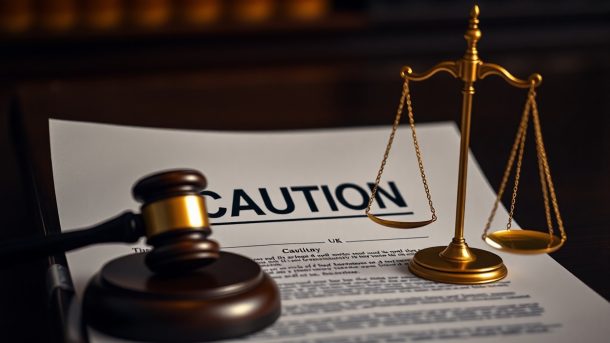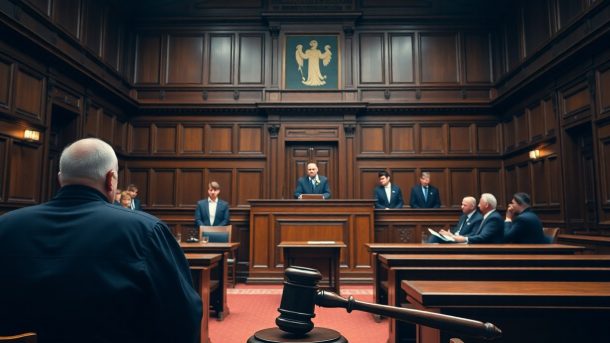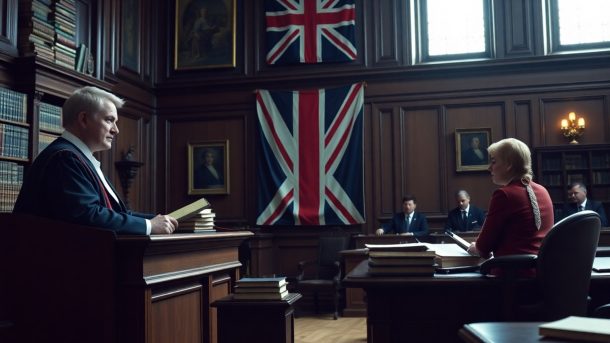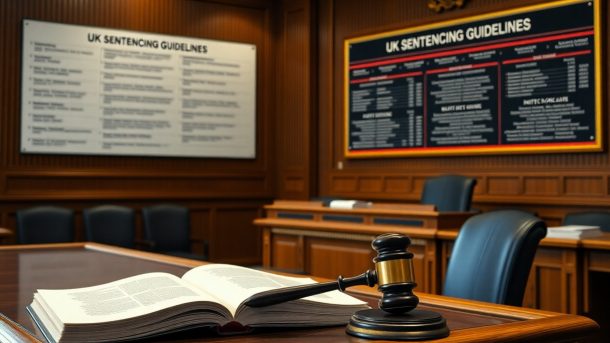Many individuals may not fully understand what a caution is and how it can impact your record in the UK. A caution is a formal warning issued by law enforcement when you admit to committing an offence but do not face prosecution. This blog post will investigate into what constitutes a caution, the different types, and how they can influence your criminal record, employment opportunities, and more. By the end, you will have a clearer understanding of the implications of receiving a caution in the UK.
Key Takeaways:
- Caution Definition: A caution in the UK is a formal warning given by the police for minor offenses and does not equate to a criminal conviction.
- Record Implications: Cautions can appear on criminal record checks, potentially impacting employment opportunities and travel.
- Duration and Disclosure: Cautions may remain on an individual’s record for a specified period, affecting disclosure obligations in certain situations.
Understanding Cautions
While navigating the legal landscape in the UK, it is vital to understand the implications of cautions. A caution is a formal warning given by the police to an individual, acknowledging an offense without the need for a prosecution. It can have lasting effects on your record, influencing various aspects of your life, including employment opportunities and travel restrictions.
Definition of a Caution
After committing a minor offense, you may receive a caution as an alternative to prosecution. This serves as a record of the incident but does not result in a criminal conviction. However, it is vital to treat this seriously, as it can reflect on your character and legal history.
Types of Cautions in the UK
An understanding of the different types of cautions is vital for you. There are generally two main categories:
- Simple Caution
- Conditional Caution
Assume that knowing these distinctions will help you navigate the potential implications on your personal and professional life. Below is a breakdown of the types:
| Type of Caution | Description |
|---|---|
| Simple Caution | A straightforward warning without conditions. |
| Conditional Caution | A warning that requires compliance with certain conditions. |
| Adult Caution | Issued to individuals aged 18 or over. |
| Youth Caution | For offenders under the age of 18. |
| Police Caution | Officially documented warning by law enforcement. |
The procedures surrounding cautions are designed to allow individuals to take responsibility for their actions without the burden of a formal conviction. Each type carries specific consequences and may impact your future opportunities. It is beneficial to understand these subtleties.
- Impact on employment opportunities
- Possible influence on travel restrictions
- Effect on insurance premiums
- Potential complications in legal matters
- Long-lasting impressions on your personal record
Assume that being informed about these factors will empower you to make better choices moving forward. The more information you have about cautions, the better equipped you will be to handle any implications they may carry.

Legal Framework Surrounding Cautions
Clearly, the legal framework surrounding cautions in the UK is complex and plays a significant role in how they impact your criminal record. Cautions are formal warnings given by police and can influence your future interactions with the criminal justice system. Understanding the regulations and laws governing cautions is necessary for anyone seeking clarity on their legal standing.
Relevant Laws and Regulations
Before you can fully grasp the implications of a caution, it is vital to be aware of the relevant laws and regulations that guide its issuance and recording. The Police and Criminal Evidence Act 1984 and the Home Office Guidance detail how cautions should be administered, which can directly affect the legal status of your record.
The Role of Police and Criminal Justice System
Along with these laws, the role of the police and the criminal justice system is central to the cautioning process. Police officers have the discretion to issue cautions based on the nature of the offence and your past behaviour.
The procedures and guidelines set by the police ensure that cautions are used appropriately, balancing the interests of justice with the aim of rehabilitation. If you receive a caution, it is recorded on your criminal record, impacting various aspects of your life, including job applications and travel. Being mindful of the cautioning process can help you navigate your rights and responsibilities within the justice system effectively.

How Cautions are Issued
Unlike many countries, the UK has a specific framework for issuing cautions, allowing police to handle minor offences without resorting to court proceedings. This system is designed to offer a less formal response while still holding individuals accountable for their actions, helping to alleviate the burden on the legal system.
Process of Issuance
Behind each caution lies a structured process whereby an officer assesses your case. They must inform you about the nature of the offence and ensure you understand the implications of accepting a caution, including its potential impact on your criminal record.
Criteria for Receiving a Caution
Process for receiving a caution typically involves your offence being minor, and it’s likely that you have not committed other crimes previously. The police will also consider whether you admit guilt and if you are willing to accept responsibility for your actions.
In addition, the police may take into account the circumstances surrounding the offence, including your age, mental capacity, or any mitigating factors that may have played a role. If the offence is serious or if you have a history of criminal behaviour, a caution may not be offered, and other actions might be taken. Understanding these criteria helps you gauge the likelihood of receiving a caution should you find yourself in a similar situation.
Consequences of Receiving a Caution
Now that you understand what a caution is, it’s crucial to recognize the potential consequences of receiving one. A caution can have significant implications for your future, affecting various aspects of your life, including your criminal record, employment opportunities, and travel plans. Being aware of these impacts will help you navigate the challenges that may arise from receiving a caution.
Impact on Criminal Record
Consequences of a caution mean that it can appear on your criminal record, which may be disclosed during background checks. This can affect your eligibility for certain roles, particularly those that require a clean record. Depending on the severity of the caution, it may remain on your record for six years, influencing how others perceive your trustworthiness.
Implications for Employment and Travel
For individuals, having a caution may hinder your chances of obtaining specific jobs or positions, especially in sectors that require a thorough background check. Moreover, it could affect your ability to travel abroad, as some countries may deny entry or require additional documentation if you have a caution on your record.
Record-keeping policies vary by employer, but many require criminal background checks, especially for sensitive roles. A caution may lead to additional scrutiny during applications, potentially decreasing your chances of employment. In terms of travel, countries such as the USA may deny entry based on your criminal history, so it’s important to check their specific requirements before planning a trip.
Reversing or Contesting a Caution
For those looking to challenge a caution, it is imperative to understand your rights and the potential outcomes. You can contest a caution if you believe it was issued incorrectly or if you have mitigating circumstances. This process provides an opportunity for you to present your case against the caution and seek its removal from your record.
Procedure for Challenging a Caution
On initiating the challenge process, you should gather relevant evidence and documentation that supports your claim. You’ll need to formally write to the police force that issued the caution, outlining your reasons for contesting it. They will review your case and may hold a meeting to discuss the matter further, allowing you to put forth your arguments.
Effects of Successful Challenges
After successfully contesting a caution, you can expect the caution to be removed from your criminal record, which may significantly improve your personal and professional opportunities. This positive outcome can mean better career prospects, renewed trust in your character, and the ability to move forward without the weight of the caution affecting your life.
Caution removal can have significant positive effects on your life, especially when applying for jobs, visas, or when you need to provide a background check. Employers and other organizations often conduct checks that reveal cautions, which can lead to misunderstandings or assumptions about your character. Removing a caution can help ensure that your background reflects your true self and allows you the chance for new opportunities without the burden of past mistakes. By challenging and successfully reversing a caution, you can restore your reputation and regain control of your future.
Long-Term Effects of Cautions
All cautions can have lasting implications on your life. They may influence future employment opportunities, travel, and even your personal relationships. If you seek more information about how a police caution differs from a warning, visit Police Caution & Warnings | What Is A Caution?.
Duration of Record Keeping
For a police caution, your record may remain on file for a significant period, typically six years for adults and five years if you are a juvenile. This duration can affect your background checks, especially when applying for jobs that require a criminal record disclosure.
Rehabilitation and the Impact on Daily Life
Effects of a caution can seep into various aspects of your daily routine. Your social interactions, educational opportunities, and even housing applications could be influenced by the existence of a caution on your record.
At times, you may find that a caution impacts your ability to secure certain positions, especially in fields that involve working with vulnerable populations or require security clearances. The stigma associated with having a caution can also affect your personal life, as others may have perceptions shaped by your past actions. Understanding these potential challenges is necessary for navigating your future successfully.
To wrap up
From above, it is clear that a caution can significantly impact your record in the UK, influencing various aspects of your life, such as employment opportunities and travel. Understanding the nuances of how a caution works will help you navigate the potential implications it might have. It is advisable to seek legal guidance if you find yourself in a situation involving a caution, as this will empower you to make informed decisions that protect your interests and shape your future.
FAQ
Q: What is a caution in the UK, and how is it issued?
A: A caution is a formal warning administered by the police in the UK when an individual admits to committing an offense but does not wish to be prosecuted. This usually happens for minor offenses, and the individual must accept the caution after being informed of its implications. The police officer will provide the individual with a written caution that includes details of the offense and the admission of guilt. It is imperative to understand that accepting a caution has legal consequences, as it constitutes an admission of guilt.
Q: How does a caution affect my criminal record in the UK?
A: When a caution is accepted, it will be recorded on the individual’s criminal record. While it may not be classified as a criminal conviction, it can still be disclosed in certain circumstances, such as during background checks for employment or volunteer work, especially in sensitive positions involving children or vulnerable adults. The presence of a caution may impact opportunities, as employers can see it when running checks, potentially influencing their decisions regarding hiring or trustworthiness.
Q: Can I appeal or have a caution removed from my record?
A: Unfortunately, once a caution is accepted, it cannot be appealed or withdrawn. However, there are specific guidelines regarding the retention and disclosure of cautions. For adults, a caution usually remains on record for six years before it may be eligible for removal, while for those under 18, it is typically eligible for removal after two years. If there are concerns regarding the implications of having a caution on your record, it may be beneficial to seek legal advice to explore potential options.













Recent Comments